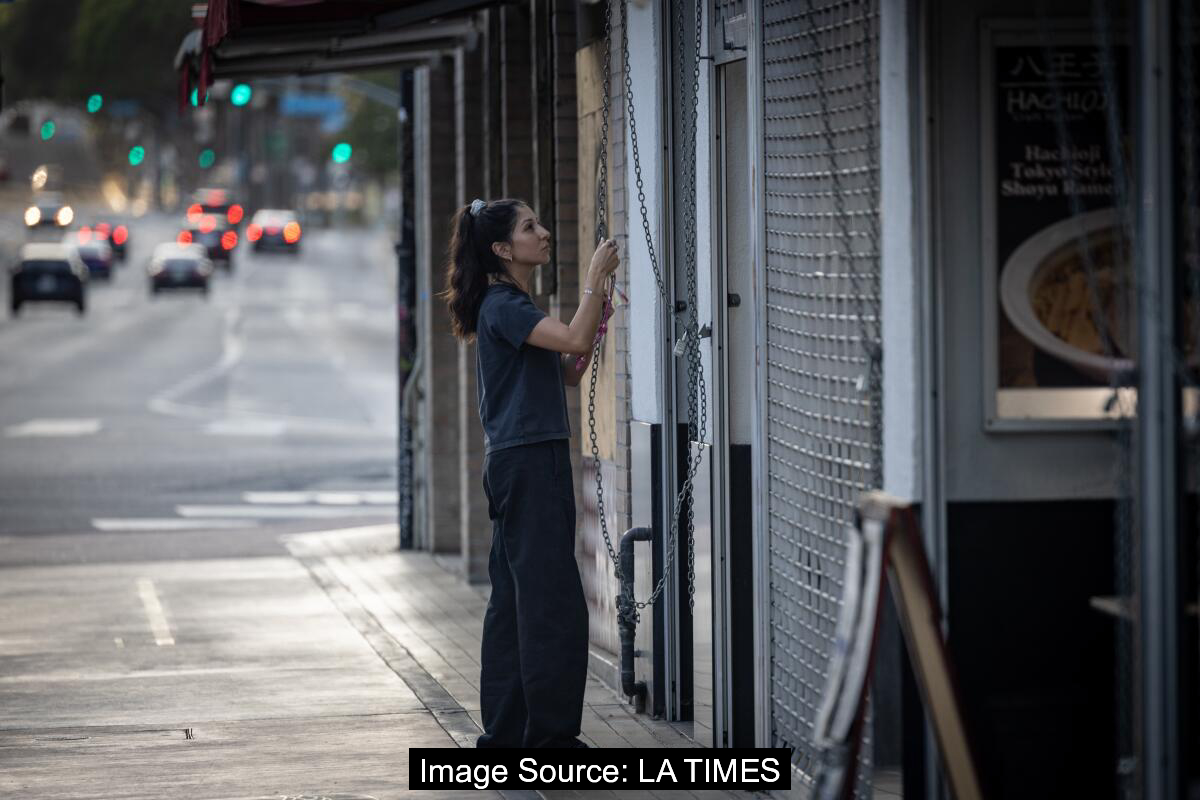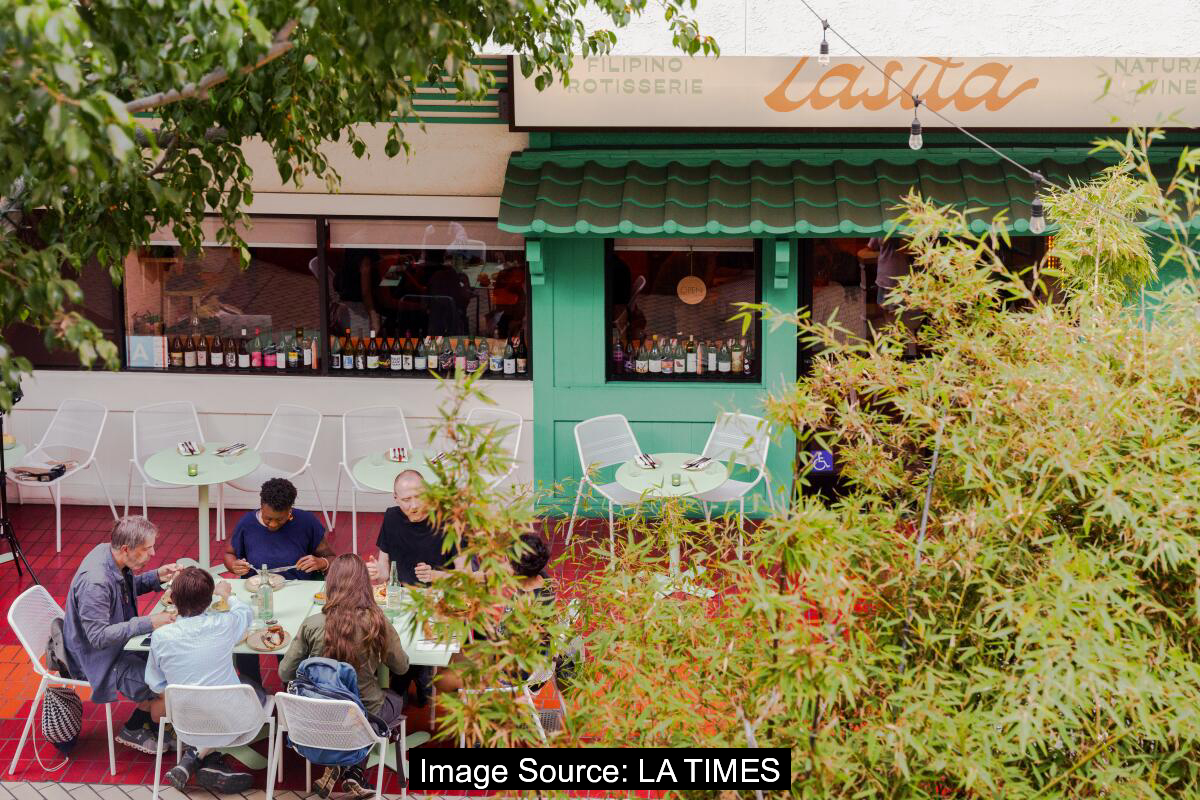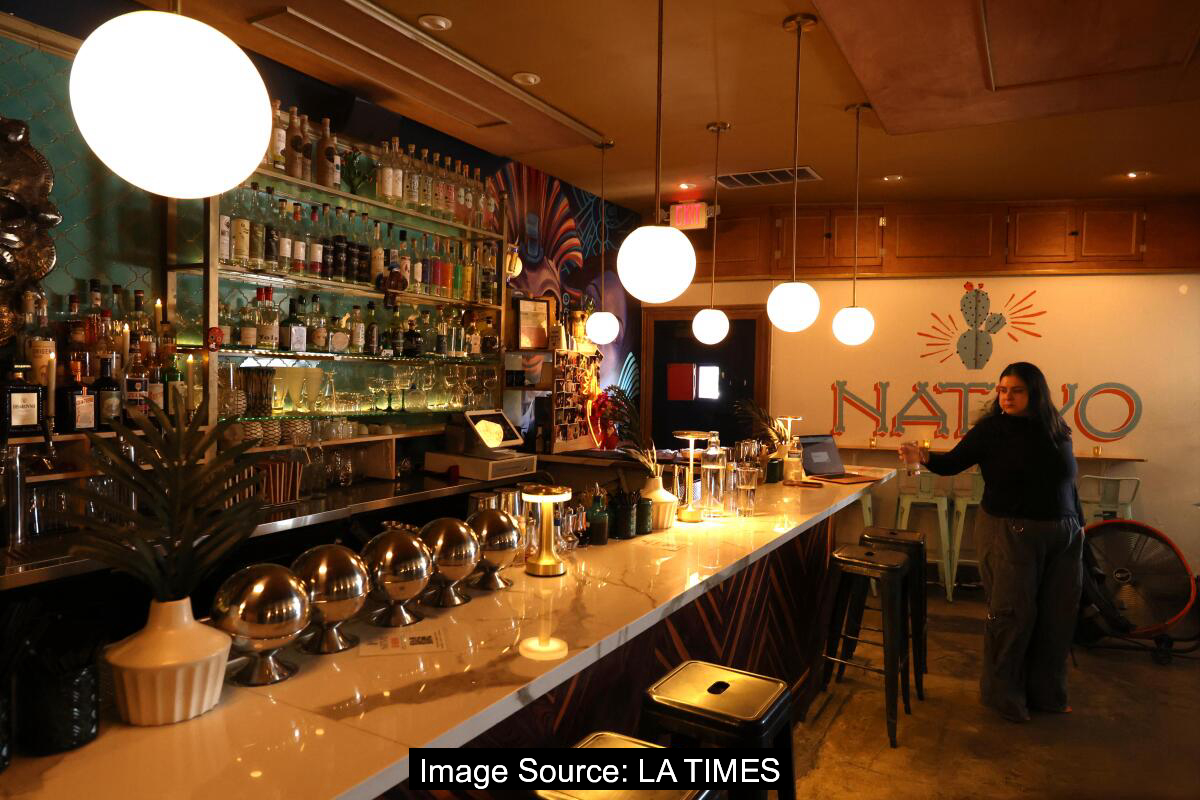In the heart of Los Angeles, a hidden workforce powers the vibrant restaurant industry, often unnoticed and unprotected. These undocumented workers are the backbone of the city’s culinary landscape, yet their contributions and struggles remain largely unacknowledged. As we delve into this story, we’ll explore the crucial role they play and the industry’s responsibility to safeguard their rights and well-being.

A Shift in the Status Quo
The restaurant industry in Los Angeles has experienced a significant slump in the aftermath of ICE’s arrival in the city. With fewer customers dining in and more staff calling out, restaurant owners and managers have had to scramble to provide a framework of security and support for their predominantly immigrant workforce. The industry, which has long maintained a status quo of hiring undocumented immigrants, is now finding creative solutions to support their fearful staff.
Responding to the Unrest
Tucked into a Chinatown shopping plaza, the modern Filipino restaurant Lasita is typically bursting with energy. However, that all changed on the evening of June 6th when more than 10 Immigration and Customs Enforcement vans filled the parking lot across from the restaurant, leaving guests and staff “spooked,” said co-owner Chase Valencia. “We were in a position of just reacting and in a state of shock because we didn’t know how to respond accordingly,” he said, managing a predominantly Asian and Latino staff.

The Impact on the Restaurant Industry
A Downturn in Economic Activity
ICE has made sweeping arrests since arriving in the region, resulting in widespread protests as well as a financial downturn for businesses across the county as many workers and customers remain home out of fear of being profiled. This absence of economic activity has been felt acutely in the restaurant industry, which is staffed overwhelmingly by Latinos and immigrants — 79% and 66% respectively, according to the the Public Policy Institute of California, a nonprofit, nonpartisan think tank.
“The industry is deeply confused,” said Corissa Hernandez, the owner of Nativo, a Mexican bar and restaurant in Highland Park. “We’re alarmed. We’re frustrated about the lack of transparency, especially legal clarity. We’re business owners, we’re not immigration experts.”

Adapting to the New Reality
Providing Security and Support
Owners and managers say attending Know Your Rights workshops and implementing emergency safety protocols have given staff more confidence in case a raid were to occur at their business. A sign in the window of Lasita reads, “Everyone is welcome here * Except I.C.E.* We have the right to deny I.C.E. access to private areas without a judicial warrant. We assert our constitutional rights — which apply to everyone in this country, regardless of immigration status – in this establishment. Members of our community are safe here. Any form of harassment of guests or staff will not be tolerated.”
The Importance of Community
Despite the challenges, the restaurant industry is finding ways to support its immigrant workforce and build a sense of community. By providing legal resources, implementing safety measures, and fostering a welcoming environment, restaurant owners and managers are working to navigate this uncertain time and ensure the well-being of their staff and customers.

Conclusion: A Personal Reflection
As I read through the stories of the restaurant owners and managers in Los Angeles, I was struck by the resilience and compassion they’ve shown in the face of such a difficult situation. The restaurant industry has always been a hub of diversity and community, and it’s heartening to see these business leaders stepping up to support their immigrant employees and create a safe haven for all. While the legal and economic challenges are daunting, their commitment to providing security, resources, and a sense of belonging is truly inspiring. This blog post has reinforced my belief in the power of community and the importance of standing up for the rights and well-being of all people, regardless of their immigration status. I’m grateful to have learned more about the experiences of these restaurant owners and their staff, and I hope their stories will inspire others to find ways to support and uplift their own communities during these uncertain times.
Keywords
safe
English translation: safe
Example sentences:
– The area is considered a safe place to live.
– I feel safe walking home at night in this neighborhood.
Detailed explanation: The word “safe” refers to a state of being free from harm or danger. It describes a situation, environment, or condition that is secure, protected, and free from risk or threat.
region
English translation: region
Example sentences:
– The coastal region of the country is known for its beautiful beaches.
– The mountainous region experiences heavy snowfall during the winter.
Detailed explanation: The word “region” refers to a specific area or part of a larger territory, country, or continent. It can describe a geographic, political, or cultural division within a larger entity.
after
English translation: after
Example sentences:
– I will go to the gym after work.
– The party will start after the guests arrive.
Detailed explanation: The word “after” is a preposition that indicates a sequence or order of events. It is used to describe something that happens or occurs following another event or time period.
window
English translation: window
Example sentences:
– The large window in the living room provides plenty of natural light.
– I like to sit by the window and watch the world go by.
Detailed explanation: The word “window” refers to an opening in a wall or door that is designed to allow light and air to enter a building. It can also be used to describe a specific frame or pane of glass that fills this opening.
Nativo
English translation: native
Example sentences:
– The native people of the region have a rich cultural heritage.
– As a native speaker, I can help you improve your pronunciation.
Detailed explanation: The word “native” describes something or someone that is original, indigenous, or inherent to a particular place or environment. It is often used to refer to the natural or original inhabitants of a specific region or country.
Encouraging words for language learners:
Keep up the great work in your language learning journey! Consistent practice and a positive attitude are key to improving your skills. Remember to be patient with yourself and celebrate your progress, no matter how small. With dedication and perseverance, you can achieve your language learning goals. Keep studying hard, and don’t be afraid to make mistakes – they are a natural part of the learning process. You’ve got this!